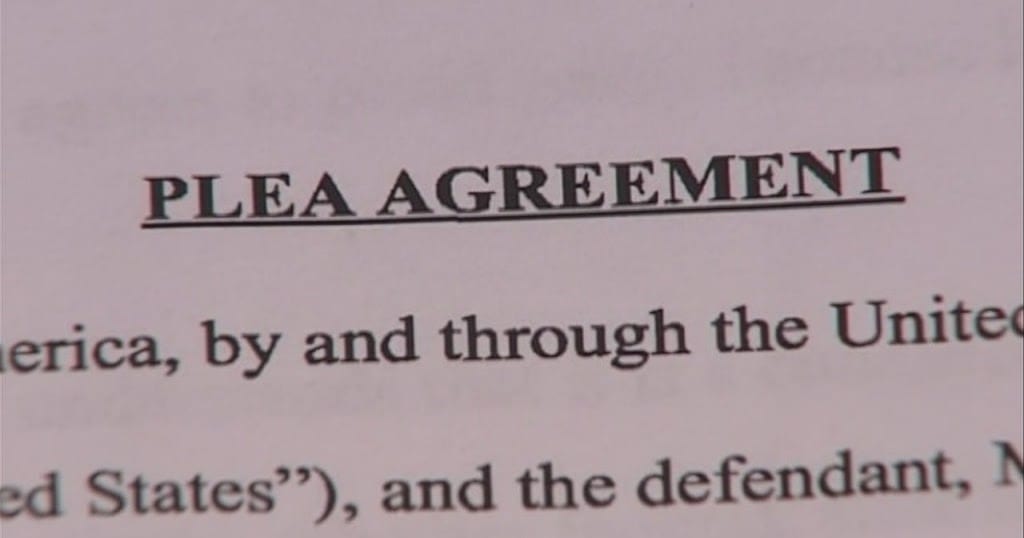US v. Roderrete McClure (5th Cir., 4/25/17): When Does a Plea Agreement in Federal Court Prevent Additional Indictments?
Tough, tough lesson here for McClure, and all criminal defense lawyers should be aware of this case. Here, McClure appeals the denial of his motion to dismiss his indictment for narcotics trafficking, arguing that the Government was barred from pursuing the indictment based on a plea agreement he entered into in an earlier case. In 2012, McClure pleaded guilty to 18 USC 922(g)(1), Felon in Possession of a Firearm. Information leading to this charge was obtained during the course of the Government’s investigation of McClure for public corruption and narcotics trafficking which eventually led to these charges.
Essentially, McClure and others stole drugs on several occasions from the Tenaha, Texas Marshal’s Office to sell. He and others eventually staged a burglary of the evidence room to cover up the crime. They stole drugs and gun and dumped the guns in a creek outside of Tenaha. The FBI got involved after McClure’s confederate forwarded extortion letters that he and McClure received. The letters were signed “Jack Frost” who purported to be a DEA agent and threatened to expose the thefts at the Marshal’s Office unless they paid him money. The FBI concluded, after investigation, that Tracy Forman wrote the letters. Fortman confessed and said he needed the money because he couldn’t move the drugs that McClure and his buddy gave him. He also showed the FBI agent a picture of a ‘well-stocked” gun cabinet in McClure’s house. Shortly before interviewing Fortman, the FBI agent also interviewed McClure about the burglary of the Marshal’s office. McClure told the agent he had installed recording equipment at the Marshal’s Office and City Hall and that he kept copies of these recordings on computers and hard drives in his home. Based on this information, the agents got a search warrant. And that’s when they found the guns (and other stuff not directly pertinent to this issue).
Two days later, McClure is indicted for the guns. The Government filed a 404(b) motion regarding the guns stolen from the Marshal’s Office. The judge excluded that evidence finding it concerned another “crime which is still under investigation” and was “peripheral” to the gun charge. McClure pleaded guilty to a single count of being a felon in possession of a fire arm. The plea agreement stated:
-
Government’s Agreement: The United States Attorney for the Eastern District of Texas agrees not to prosecute the defendant for any additional non-tax-related charges based upon the conduct underlying and related to the defendant’s plea of guilty.
After this, the Government continued its investigation into public corruption and narcotics trafficking. The investigation was transferred to another district. In August, 2013, McClure was indicted for drug conspiracy, possession with intent to distribute and distribution of marijuana, cocaine, prescription drugs and firearms charges. A whole bunch of Texas-sized trouble. McClure moved to dismiss the indictment on the basis that the earlier plea agreement precluded his prosecution.
At a hearing on the matter, McClure’s lawyer testified it was her understanding during the plea negotiations that the plea agreement would preclude any charges related to the Tenaha narcotics investigation, and that’s what she advised her client. She also testified, however, that she did not recall any specific conversation with the AUSA on the issue. The AUSA testified that she never suggested to counsel or anyone else that McClure’s guilty plea would dispose of these other charges. The AUSA also testified that defense counsel never received any discovery relating to the narcotics investigation, other than evidence relating to the guns. The district court judge denied the motion to dismiss the indictment. He appealed.
The Fifth Circuit essentially adopted the district court’s reasoning. The 2012 plea agreement stated that the Government could not bring additional charges “based upon the conduct underlying and related to the defendant’s plea of guilty.” The two sets of charges are separate and distinct because 1) the two cases involved separate and distinct courses of conduct, 2) In the gun case, the crime was possession of the stolen guns while he was a felon; the narcotics case involved stolen drugs and guns from the Marshal’s Office, 3) the relevant time frames were different– August 15, 2011 for the guns, August 2009 to the end of 2010 for the narcotics case, 4) they happened at different places, 5) they implicated different statutory provisions, and 5) there’s a co-conspirator in the narcotics case not present in the gun case.
McClure argued that since the charges arose out of the same investigation, they are “inextricably intertwined.” Per the Court, this argument misses the point. The focus of the Government’s promise not to bring any additional charges is on the conduct “underlying and related to the” McClure’s guilty plea, and not on the Government’s investigation of it. Additionally, in another case, United States v. Elashyi, 554 F.3d 480 (5th Cir. 2008) the Fifth Circuit found a breach of a plea agreement where the language of the agreement was that the Government agreed not to “seek, prefer or prosecute any further criminal charges against [the defendant] arising out of the facts and circumstances known by the government at this time surrounding [the defendant’s] involvement in the crimes addressed in the …indictment.” As noted in that opinion, the phrase “arising out of” has a very broad meaning. And also, a defense counsel’s subjective belief that a defendant’s plea will preclude future prosecuted related to an ongoing investigation, even if the defendant relies on it, does not, without more, immunize him from prosecution.” See United States v. Williams, 809 F.2d 1072, 1079-80 (5th Cir. 1987).
So, really tough result here, and serves as a reminder that one set of charges, arising out of an investigation, does not necessarily immunize a client from a second set of charges from that same investigation. Language is key, and make sure there’s no wiggle room in the plea agreement.

